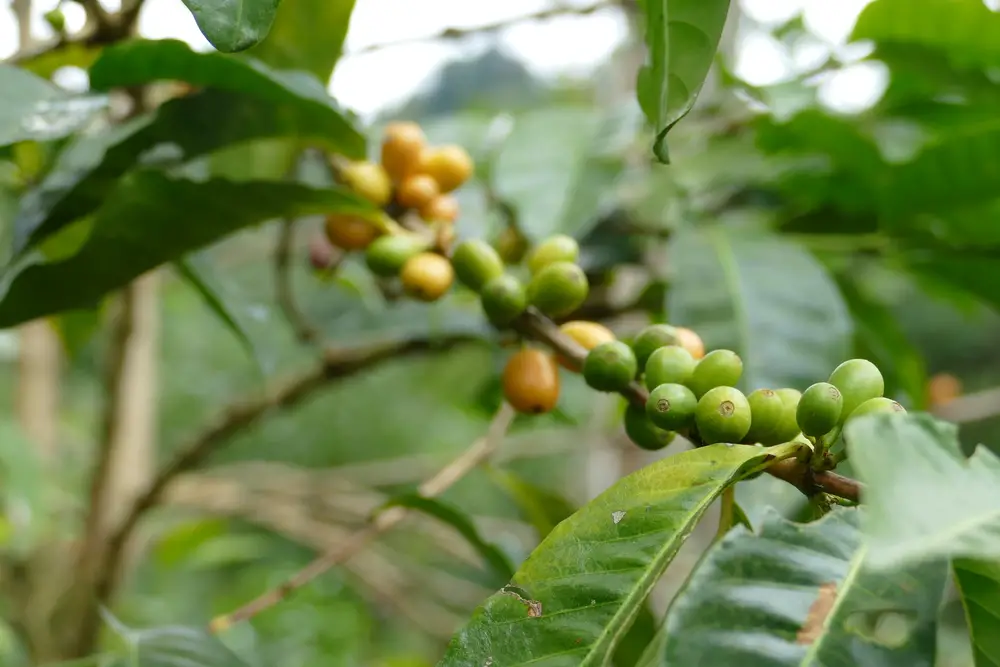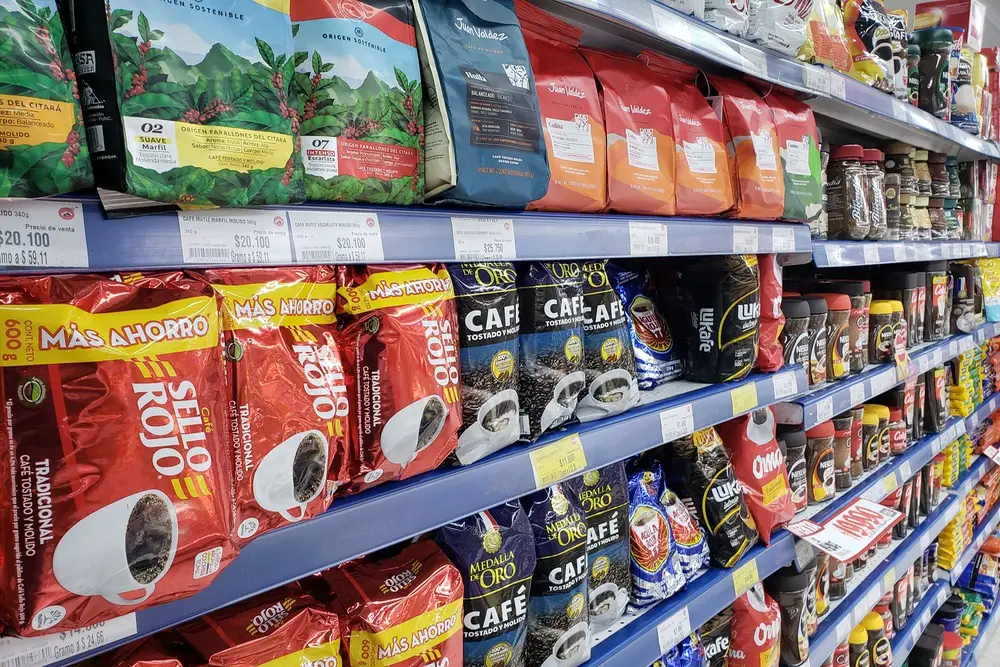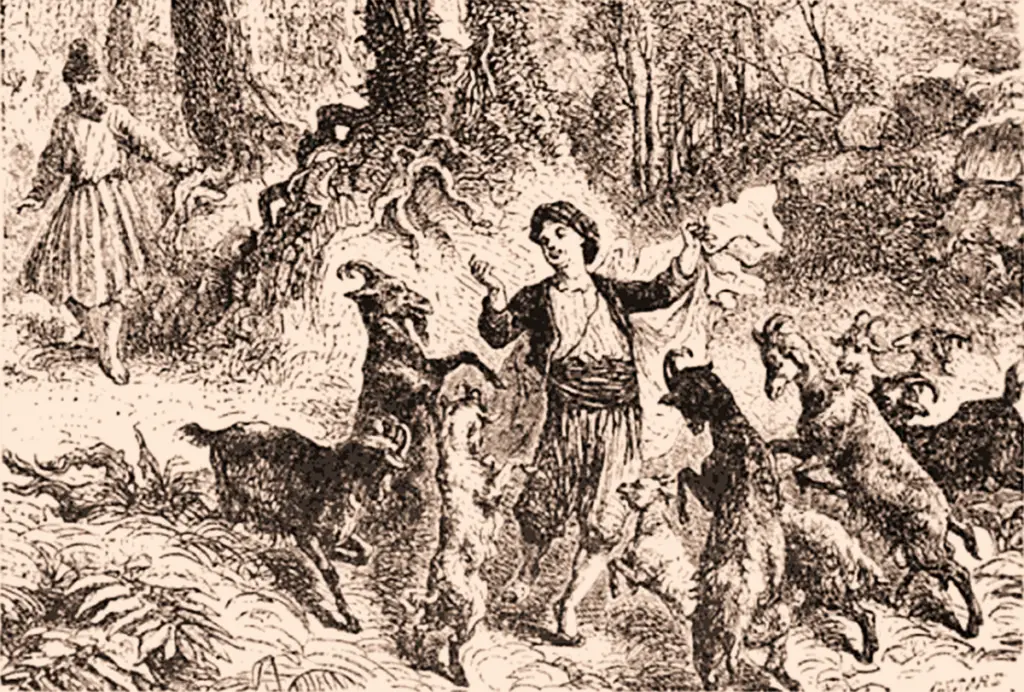Eritrea is a country in East Africa and gained its independence not so long ago. Eritrea is also a coffee producer and has a special ceremony around coffee.
Table of Contents
Coffee ceremony in Eritrea
Eritrea is a country that has experienced many divisions in families and communities due to political and social differences. The coffee ceremony has been used as a means to help families and communities live together and stay together despite their likes and dislikes.
The coffee ceremony is prepared at home and usually it is the housewife who leads the ceremony.
The ritual takes place at a round table suitable for the ritual, called a rekbot.
Below is a step-by-step guide for this ceremony to remember:
- The beans are washed, sorted and then roasted.
- The green beans are placed on a tray called “qallayah” and then roasted on a charcoal stove or in an oven.
- After roasting, the beans are crushed using a tool called a “faudak”, a type of anvil that allows for fairly fine grinding.
- The grains are placed in a vessel called a “jebena”, a clay pot with a long neck and a spherical bottom.
- The “jebena” is filled with water and heated over a charcoal fire until it boils.
- After the coffee has boiled, it is placed in another vessel to cool. The coffee is passed through a horsehair filter placed in the neck of the “Jebena” to prevent the coffee grounds from spilling out.
- After preparing the coffee, the hostess serves it to all guests in small bowls without a handle. Note that the preparation can be strong and bitter, so add a spoonful of butter, sugar, cinnamon, salt or other spices to taste.
- During the ceremony, the coffee is brewed three times as it is said to bring good luck. The first brew is called “awel” and is the strongest, the second is called ” kale ” and is made from the beans of the first brew so it has a milder flavor. The last sip is taken before everyone leaves the table and is called “baraka”.
Interesting facts about the coffee ceremony in Eritrea
- In Eritrea, the coffee ceremony is accompanied by popcorn, peanuts and sweets, most notably “dabo kolo”, which consists of small pieces of bread that are sweetened and baked until nice and crispy. Here, “dabo” refers to the bread, while “kolo” is a mixture of coffee beans and roasted barley.
- Coffee is served at the ceremony in a small, handleless cup called a “finjal” which holds 2 to 3 ounces of coffee.
- The coffee ceremony is a traditional ritual characteristic of Ethiopia and Eritrea.
- The ritual has a spiritual and cultural component with guests and hosts.
- The coffee ceremony is decorated with yellow flowers.
- Tea will be served to those who politely decline coffee during the ceremony.
- Preparing the coffee for the ceremony can take up to an hour.
- Eritreans believe that the “jabanah” distinguishes Eritrean coffee from Turkish and Arabic coffee.
- In Eritrea it is almost impossible to see someone drinking coffee alone as this is usually done in a group during the coffee ceremony, usually to chat and discuss family matters or share jokes and banter.
- Many of the clay utensils used in the coffee ceremony are made in Eastern Sudan.
- The two types of Eritrean coffee most commonly used in the coffee ceremony are: Al-Luqmati and Al-Harari.
- In the Eritrean coffee ceremony, as in Ethiopia, incense is used for flavoring. Enjoying the sweet scent of incense before drinking their coffee is mandatory for many families.
- The housewives always prepare the coffee in front of the coffee ceremony guests so that they can smell the smoky roasted beans.
- For many Eritrean villages, the coffee ceremony is undoubtedly the most important social event, as it is a great show of friendship and respect among the participating members.
- Coffee ceremony guests must drink at least 3 cups of coffee before leaving, as it is considered impolite to leave early.
- There is a fourth preparation not often served at the coffee ceremony, known as “dereja”. This preparation is usually served when the elderly are present, who take the opportunity to share their memories and experiences with the young.
General facts about Eritrea
Below are some general facts about Eritrea. Eritrea’s history is marked by a major conflict that has led to many internal divisions.
- Eritrea was launched by the Italians.
- Eritrea borders Djibouti, Ethiopia and Sudan.
- After World War II, the Italians decided to cede the country to the Allies.
- Eritrea was part of Ethiopia from 1947 until independence in 1993.
- The war for Eritrean independence lasted from 1961 to 1991 and claimed the lives of about 65,000 combatants and thousands of civilians.
- Eritrea is considered one of the youngest countries in the world.
- Asmara, the capital of Eritrea, is the largest city in the country and is 2200 meters above sea level.
- Asmara is called Little Rome because of the monuments resembling Italian architecture.
- The national dish of Eritrea is zigini, a tomato-based stew prepared with lamb or beef and flavored with berbere. Other traditional dishes include injera, a fluffy pancake made from wheat, barley, teff, corn or sorghum, and alicha, a lentil curry with berbere spice mix. Due to the strong Italian influence in the country’s history, pasta is also eaten a lot in Eritrea.
- In Eritrea, half the people are Orthodox Christians and half are Muslims.
- Siwa is a national alcoholic drink similar to beer. It is made from barley, roasted corn and other grains.
Conclusion
The coffee ceremony holds a very important place in the hearts of the people of Eritrea. It’s a tradition that manages to bring people together while honoring coffee culture.



